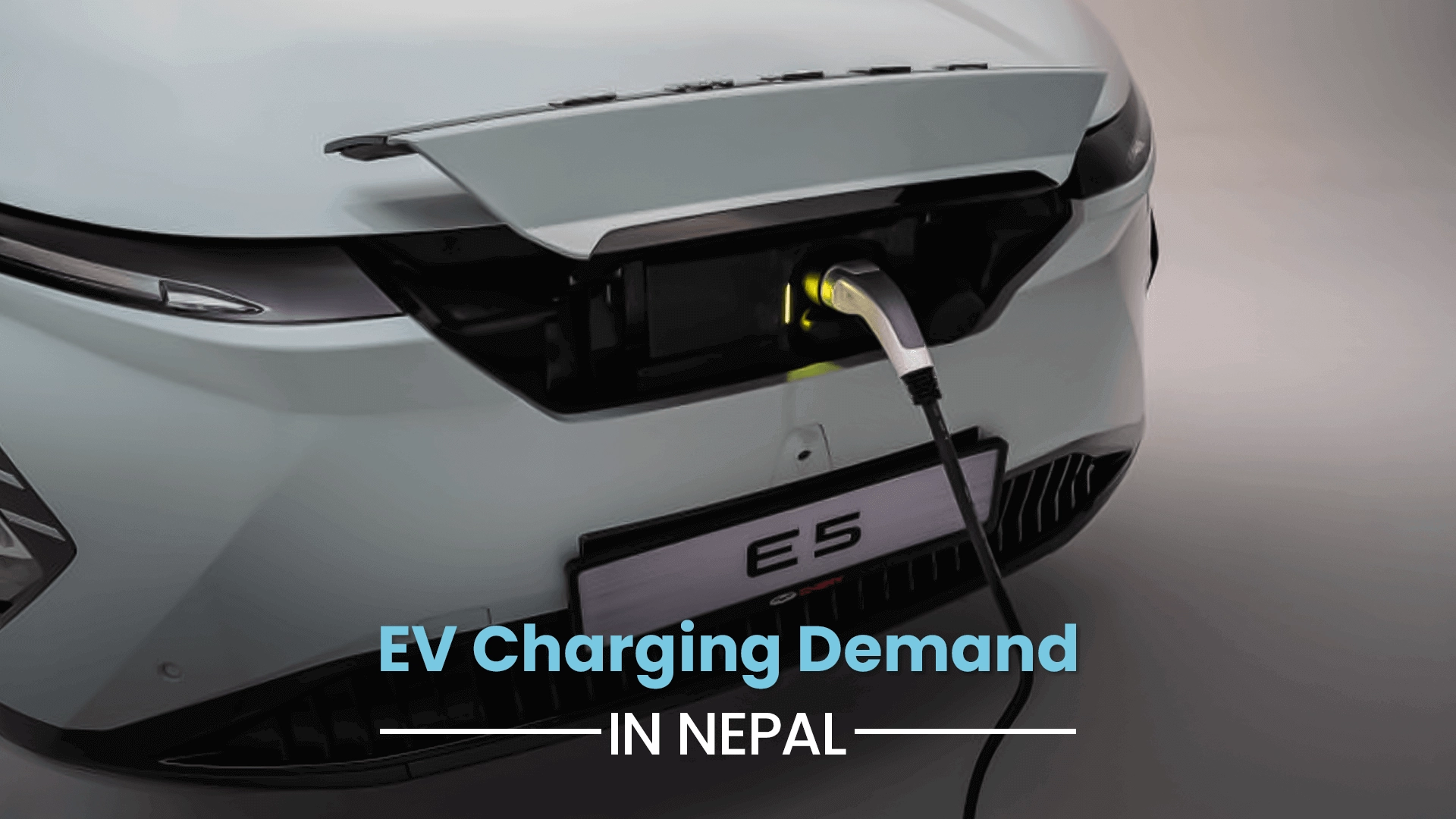Why Will EV Charging Stations Be in Demand in Nepal?
July 11, 2024
Why Will EV Charging Stations Be in Demand in Nepal?
July 11, 2024
As the world transitions towards sustainable energy solutions, electric vehicles (EVs) have emerged as a pivotal element in reducing carbon footprints and fostering environmental sustainability. Nepal's growing interest in electric vehicles (EVs) is a big step toward cleaner transportation. This change necessitates a corresponding increase in EV charging stations to support and sustain this eco-friendly movement.
The rise in electric vehicle (EV) adoption in Nepal has created an urgent need for a robust and widespread network of EV charging stations. Establishing such an infrastructure is critical to supporting the growing number of EVs on the road and ensuring their efficient and convenient use.
The global electric vehicle (EV) market has seen remarkable growth, driven by government policies, technological advancements, environmental concerns, and automaker investments. Countries worldwide are adopting EVs at an unprecedented rate, supported by subsidies, tax breaks, and improved battery technology. In Nepal, the EV market, though still emerging, is experiencing a significant rise in adoption. Government initiatives, such as reduced customs duties and VAT exemptions, coupled with the increasing cost of fuel and heightened environmental awareness, are propelling this growth.
Recent statistics indicate a notable increase in EV registrations, particularly for electric two-wheelers and cars. The development of EV charging infrastructure and efforts to electrify public transportation are further encouraging this trend. Projections suggest continued growth in Nepal's EV market, driven by enhanced infrastructure, increased awareness, and ongoing technological improvements, signaling a promising future for electric mobility in the country.
AC vs DC Charging for EVs: Learn the Difference
Installing EV charging stations in Nepal can significantly encourage more people to buy electric vehicles. One of the primary concerns for potential EV buyers is the availability of convenient charging options. To address this concern, the presence of well-distributed charging stations across the country can alleviate range anxiety and make EV ownership more practical and appealing. This infrastructure development is crucial in fostering a supportive environment for EV adoption, ultimately leading to an increase in the number of electric vehicles on Nepalese roads.
Businesses and property owners in Nepal stand to gain financially from providing EV charging services. By installing charging stations, they can attract more customers, thereby increasing foot traffic and potentially boosting sales. Offering EV charging can also open up new revenue streams, as drivers pay for the convenience of charging their vehicles. This creates a mutually beneficial situation where both the businesses and the EV owners benefit.
While the initial investment in setting up EV charging stations may be significant, the long-term benefits are substantial. Lower operational costs compared to traditional fuel stations, as well as the growing number of EV users, ensure a consistent return on investment. As EV adoption continues to rise in Nepal, businesses and property owners who invest early in charging infrastructure can expect sustained financial returns and cost savings over time.
EV charging stations may increase the value of properties in Nepal. These properties become more attractive to tenants, buyers, and investors who prioritize sustainability and modern amenities. The presence of charging stations can make a property stand out in the market, enhancing its overall value and appeal.
Offering EV charging can significantly enhance a business's reputation in Nepal. Investing in sustainable practices positions businesses as environmentally conscious and forward-thinking, thereby attracting eco-conscious customers. This not only improves brand loyalty but also provides a competitive edge in the market. By promoting sustainability, businesses can align themselves with the growing movement towards environmental responsibility, strengthening their brand image and customer base.
Early adoption and establishment of EV charging infrastructure in Nepal are crucial for staying ahead of the demand curve. By investing in charging stations before demand peaks, businesses and property owners can secure a competitive edge and avoid potential future challenges, such as increased prices and heightened competition for EV charging stations. Successfully implementing and managing EV charging infrastructure involves strategic planning, including selecting optimal locations, leveraging government incentives, and integrating the latest technologies for efficient operation. Proactive measures now can ensure a robust, reliable network that supports the growing number of EVs and positions stakeholders as leaders in the sustainable transportation movement.
EV Charging Stations for Omoda Jaecoo EVs
The demand for EV charging stations in Nepal is set to rise as more people recognize the benefits of electric vehicles. By investing in EV charging infrastructure, businesses and property owners can not only contribute to a sustainable future but also reap substantial economic benefits. Early adoption and strategic implementation of EV charging stations will position Nepal at the forefront of the green transportation revolution, fostering a cleaner, more sustainable environment for all.
Encouraging businesses and property owners to invest in EV charging stations is not just about keeping up with a trend; it's about pioneering a movement that promises a greener, more prosperous future for Nepal.
